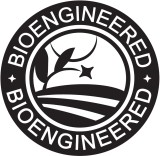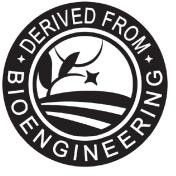Foi disponibilizada, gratuitamente para download, a versão e-book da obra "O Direito Agrário nos 30 anos da Constituição de 1988 - Estudos em homenagem ao Prof. Dr. Darcy Walmor Zibetti": clique aqui.
"Omnium rerum ex quibus aliquid acquitur nihil est agricultura melius, nihil uberius, nihil dulcius, nihil homine, nihil libero dignius." Marcus Tullius Cicero. In: De officiis, I. 150-152.
terça-feira, maio 28, 2019
quinta-feira, maio 09, 2019
Key Provisions Of USDA's Bioengineered Food Disclosure Rule
 |
| Arent Fox - https://www.arentfox.com/ |
On December 21, 2019, the U.S. Department of Agriculture (USDA) Agricultural Marketing Service (AMS or Agency) issued its final rule establishing a National Bioengineered (BE) Food Disclosure Standard (NBFDS). The rule implements amendments to the Agricultural Marketing Act made by Public Law 114-216 on July 29, 2016 (the Act) and follows an initial request for comment by AMS on June 28, 2017 and publication of a proposed rule on May 4, 2018. This two-part article summarizes key provisions of this new federal marketing standard, including the Agency’s approach to defining “bioengineered foods” and addressing refined ingredients, voluntary labeling, absence claims, and the applicable disclosure threshold. Part 1 discussed compliance deadlines, responsible parties, definitions, AMS’ list of bioengineered foods, and exemptions from the rule. In this Part 2, we’ll cover disclosure options, voluntary disclosure, absence claims, administrative issues, and enforcement.
Mandatory Disclosure
The rule incorporates the four disclosure options provided in the Act: text, symbol, electronic or digital link, and text message. The BE disclosure must appear on the information panel or the principal display panel of the product label, or on an alternate label panel if those panels contain insufficient space.
- Text Disclosure. For a BE raw agricultural commodity or an ingredient produced from that commodity, the text disclosure is “bioengineered food.” For a multi-ingredient food that contains both BE ingredients and non-BE ingredients, the text disclosure is “contains a bioengineered food ingredient.”
- Disclosure Via Symbol. Regulated entities seeking to use a symbol may use a black and white or color version of the following, which includes the word “bioengineered” in an effort to provide more information to consumers in a way that is appropriate and non-disparaging:

- Disclosure Via Electronic/Digital Link. Regulated entities choosing to disclose BE content using the electronic or digital link option must accompany the link with the statement “Scan here for more food information” (or equivalent language that reflects technological changes) along with a telephone number and clear calling instructions, i.e., “Call [1-000-000-0000] for more food information,” in close proximity to the link. The telephone disclosure must be available at all times of the day and clearly provide BE food information to the caller. Prerecorded information is permitted. The electronic or digital link must provide the bioengineering disclosure on the first product information page accessed through the link, without any marketing and promotional information.
- Disclosure Via Text Message. Regulated entities that choose this option are required to include a statement on the package that instructs consumers on how to receive a text message. Those instructions can be shared or centralized among regulated entities, if so desired. Industry is not prohibited from developing a standardized instruction or response if it is in compliance with the NBFDS regulations.
The rule also provides options for disclosure in certain special cases:
- Additional Disclosure Options for Small Food Manufacturers. AMS provides small food manufacturers, defined as a “food manufacturer with annual receipts of at least $2,500,000 but less than $10,000,000,” with two additional disclosure options for the product label: (1) a telephone number accompanied by appropriate language, e.g., “Call [1-000-000-0000] for more food information”; or (2) an Internet website address, e.g., a URL, with accompanying text, e.g., “Visit [URL of the website] for more food information.”
- Additional Disclosure Options for Small and Very Small Packages. For small and very small packages, defined using FDA’s labeling requirements, regulated entities can replace the statement “Scan here for more food information” associated with a link disclosure with the statement “Scan for info.” For the text message, entities can replace the statement “Text [number] for more bioengineered food information” with “Text [number] for info.” For very small packages, regulated entities may use a label’s preexisting URL or telephone number for disclosure.
- Disclosure for Food Sold in Bulk Containers. AMS holds retailers responsible for complying with the BE food disclosure for bulk food. The disclosure must appear on signage or other materials (stickers, bindings, etc.) on or near the bulk item. Entities can use any of the options for disclosure including text, symbol, electronic or digital link, or text message (if applicable).
In response to a comment requesting an alternative website disclosure option, AMS indicated that, while it does not have the authority to require such a disclosure, regulated entities are free to include BE disclosures on their websites.
Voluntary Disclosure
AMS agrees that voluntary BE disclosure is permissible under the Act, and the rule makes voluntary disclosure available to exempt entities and to foods in which rDNA material is not detectable but which are derived from BE crops or foods.
Entities that are otherwise exempt from the requirements of the NBFDS (very small food manufacturers, and restaurants and similar retail food establishments) may voluntarily provide disclosure of BE food that would otherwise be subject to disclosure under the NBFDS. In order to provide consistency with mandatory disclosure requirements and avoid consumer confusion, voluntary disclosure must be in one or more of the forms specified in the rule for mandatory disclosure (i.e., text, symbol, digital or electronic link, text message, or appropriate small manufacturer and small or very small package disclosure options, as applicable).
For those foods or food ingredients that (A) do not meet the definition of “bioengineered food,” (B) are not exempt from disclosure under the rule, and (C) are derived from a food on the List (described in Part 1), regulated entities may disclose such foods with one of the BE disclosure options described in the rule (text, symbol, electronic or digital link, text message, or appropriate small manufacturer and small or very small package disclosure options, as applicable). Such voluntary disclosures must state either that the food is “derived from bioengineering” or contains “ingredient(s) derived from a bioengineered source,” although “ingredient” may be replaced with the name of the specific BE crop or ingredient or may use the designated voluntary disclosure symbol.

Voluntary BE disclosure is prohibited for foods that are exempt from mandatory disclosure. For example, a regulated entity could not voluntarily disclose BE content for organic foods or for foods whose BE content falls below the 5 percent inadvertent presence threshold, or for foods that are derived from animals fed BE feed (and are not otherwise subject to disclosure).
Absence Claims
AMS received a number of comments with respect to claims regarding the absence of bioengineering in food. In response, AMS notes that while the NBFDS covers mandatory and voluntary BE and BE-derived claims, the Act does not provide authority for AMS to establish an absence claims regime as part of the NBFDS. AMS also notes that FDA and, for certain products, USDA’s Food Safety Inspection Service retain authority over absence claims and that “[e]ntities seeking to use absence claims should ensure that such claims are in compliance with all applicable Federal laws and regulations and are otherwise truthful and not misleading.” Finally, while foods certified under the National Organic Program are exempt from the BE disclosure requirement, AMS states that the Act does not give the Agency the “authority to establish or align the NBFDS with a non-GMO label.”
AMS acknowledges that entities may participate in voluntary labeling initiatives such as the non-GMO Project so long as they are in compliance with all applicable Federal laws and regulations. To the degree possible, USDA has tried to minimize the impact the NBFDS will have on these voluntary absence claims. AMS acknowledges that some elements of the NBFDS may differ from requirements of some existing voluntary marketing claims. The Agency also notes that it has adopted the statutory definition of “bioengineering,” thereby exempting from disclosure foods such as refined products that have undergone processes that remove modified genetic material.
Other Claims
AMS repeatedly states that nothing in the rule prohibits regulated entities from providing additional statements or other claims regarding BE foods and BE food ingredients provided such statements are consistent with all applicable laws and regulations.
Recordkeeping
The rule provides regulated entities with significant flexibility with respect to recordkeeping, requiring maintenance of records that are “customary or reasonable” to demonstrate compliance. Such entities must maintain records for at least two years beyond the date the product is sold or distributed for retail sale. Entities must respond to AMS requests for records by providing records within five (5) business days of the request, unless AMS extends the deadline. AMS will provide prior notice of at least three (3) business days in advance of on-site inspections. Entities must provide AMS access to facilities necessary for records examinations.
Enforcement
The rule provides a process for any interested person with knowledge of a possible violation to file a statement or complaint with AMS. AMS may enforce compliance through an investigation that includes records audits and examinations or similar activity, either on its own initiative or in response to a complaint from a third party. If the entity that is the subject of such an investigation objects to any findings made by AMS, it may request a hearing in accordance with the rule. If the entity subject to the investigation does not request a hearing, or at the conclusion of a hearing and any subsequent revision of the findings made by AMS, the Agency will make the summary of the final results of the investigation public. The decision to make that summary public constitutes final agency action for purposes of judicial review. AMS does not have authority to issue civil penalties for violations.
The published version of the final rule and preamble (63 pages) can be accessed here:
About The Author:

Karen Ellis Carr is a partner at Arent Fox. She focuses her food and agriculture practice on regulatory counseling and litigation related to products regulated by USDA, EPA, and FDA. Carr works on issues related to biotechnology and other agricultural technologies, pesticides, food safety, advertising, and labeling, and environmental law. In addition to her work with individual companies, Carr has represented a number of industry associations on development and coordination of regulatory strategy, in litigation, and on federal and state legislative issues. She has first- and second-chaired matters in state and federal trial and appellate courts throughout the country and in arbitration and mediation, and has experience in all phases of litigation from pre-litigation strategy and counseling to settlement negotiation and appeals.
Etiquetas:
Biotecnología,
EE.UU.,
Etiquetado
quarta-feira, maio 08, 2019
1º Simpósio Gaúcho de Direito Agrário e Agronegócio
A União Brasileira dos Agraristas Universitários - UBAU e a Federação da Agricultura do Estado do Rio Grande do Sul - FARSUL do "1º Simpósio Gaúcho de Direito Agrário e Agronegócio", com solenidade de lançamento da 2ª edição (revista, atualizada e ampliada) obra coletiva “Direito aplicado ao Agronegócio: uma abordagem multidisciplinar” e da 1ª edição da obra “Certificado de Recebíveis do Agronegócio: os sistemas agroindustriais e o mercado de capitais”.
O evento tem como objetivo fomentar o estudo do Direito Agrário, aproximando a sociedade acadêmica, produtores rurais, entidades de classe e demais interessados, através da realização de palestras com temas da mais alta relevância para a atividade agropecuária.
Data: 17 de maio de 2019 (sexta-feira).
Horário: das 9h as 17h.
Local: Auditório da Farsul (Praça Prof. Saint-Pastous, 125 - Cidade Baixa, Porto Alegre - RS)
Programação:
Turno manhã
9h – Solenidade de abertura
- Dr. Gedeão Silveira Pereira – Presidente da Farsul
- Dr. Darcy Walmor Zibetti – Presidente da UBAU
- Dep. Covatti Filho - Secretário Estadual de Agricultura do Estado do Rio Grande do Sul (a confirmar)
- Dep. Adolfo Brito - Presidente da Comissão de Agricultura, Pecuária e Cooperativismo da ALRS (a confirmar)
9:30h – 12:00h – Painel 1: Direito e atualidades no Agronegócio
Mediador: Valtencir Kubaszwski Gama - Advogado, Diretor de Relações Institucionais da UBAU
Palestras:
Agenda legislativa 2019 do agro na ALRS – Luis Fernando Cavalheiro Pires - Assessor da Presidência do Sistema Farsul, Especialista em Direito Agrário e Ambiental aplicado ao Agronegócio pelo I-UMA/UNIP.
Projeções econômicas para o agronegócio - Antônio da Luz – Doutor em Economia pela UFRGS, Economista Chefe da FARSUL.
Jurisprudência e segurança jurídica no Agronegócio - Frederico Price Grechi - Advogado, Pós-Doutor em Direito, Presidente da Comissão de Direito Agrário da OAB/RJ e do Instituto Nacional dos Advogados – IAB, Membro da Sociedade Nacional de Agricultura – SNA.
Gestão Jurídica dos Contratos de Crédito Rural de Custeio e Investimento – Frederico Buss - Advogado, Assessor Jurídico da FARSUL, Especialista em Direito Empresarial pela PUC/RS e Direito Civil pela UFRGS.
Desenvolvimento e Conceito Atual do Agronegócio - Renato Buranello - Doutor em Direito, Advogado e Professor.
Turno tarde
Mediador: Valtencir Kubaszwski Gama - Advogado, Diretor de Relações Institucionais da UBAU
Palestras:
Agenda legislativa 2019 do agro na ALRS – Luis Fernando Cavalheiro Pires - Assessor da Presidência do Sistema Farsul, Especialista em Direito Agrário e Ambiental aplicado ao Agronegócio pelo I-UMA/UNIP.
Projeções econômicas para o agronegócio - Antônio da Luz – Doutor em Economia pela UFRGS, Economista Chefe da FARSUL.
Jurisprudência e segurança jurídica no Agronegócio - Frederico Price Grechi - Advogado, Pós-Doutor em Direito, Presidente da Comissão de Direito Agrário da OAB/RJ e do Instituto Nacional dos Advogados – IAB, Membro da Sociedade Nacional de Agricultura – SNA.
Gestão Jurídica dos Contratos de Crédito Rural de Custeio e Investimento – Frederico Buss - Advogado, Assessor Jurídico da FARSUL, Especialista em Direito Empresarial pela PUC/RS e Direito Civil pela UFRGS.
Desenvolvimento e Conceito Atual do Agronegócio - Renato Buranello - Doutor em Direito, Advogado e Professor.
Turno tarde
13:30 – 15:00h - Painel 2: Relações contratuais no agronegócio
Mediador: Nestor Hein – Advogado, Direitor Jurídico da FARSUL.
Palestras:
A fixação do preço no arrendamento rural – Albenir Querubini - Mestre em Direito pela UFRGS, Coordenador Científico do Curso de Especialização em Direito Agrário e Ambiental aplicado ao Agronegócio do I-UMA, Vice-Presidente da UBAU.
O contrato de parceria rural: frutos e despesas – Wellington Gabriel Zuchetto Barros – Advogado, Especialista em Direito Agrário e Ambiental aplicado ao Agronegócio pelo I-UMA/UNIP, Membro da UBAU.
Contratos agrários agroindustriais - Francisco de Godoy Bueno – Advogado, Doutorando em Direito pela USP, Conselheiro e Vice-Presidente da Sociedade Rural Brasileira – SBR.
Contrato de crédito rural: atualidades sobre renegociação de dívidas rurais - Francisco Torma – Especialista em Direito pela UNIJUÍ, Professor e Advogado.
15:30 – 17:00 – Painel 3: Agronegócio e meio ambiente
Mediador: Maurício Fernandes da Silva – Secretário Municipal de Meio Ambiente e Sustentabilidade de Porto Alegre.
Palestras:
Código Florestal e sua importância para o agronegócio - Rafaela Aiex Parra – Advogada, Mestranda em Direito pela UEL, MBA em Agronegócio pela ESALQ/USP, Coordenadora Regional da UBAU no Paraná.
Agronegócio e a tríplice responsabilidade ambiental - Luisa Falkenberg – Advogada, Mestre pela Universidade de Wisconsin e Professora de Direito Ambiental.
Fiscalização, processo administrativo e a conversão de multas ambientais - Alexandre Burmann – Advogado, Mestre pela Unissinos e Professor de Direito Ambiental.
17:00 - Lançamento da 2ª edição da obra coletiva “Direito aplicado ao Agronegócio: uma abordagem multidisciplinar” e da 1ª edição da obra “Certificado de Recebíveis do Agronegócio: os sistemas agroindustriais e o mercado de capitais”.
* A programação pode ser sujeita a alterações.
Mediador: Maurício Fernandes da Silva – Secretário Municipal de Meio Ambiente e Sustentabilidade de Porto Alegre.
Palestras:
Código Florestal e sua importância para o agronegócio - Rafaela Aiex Parra – Advogada, Mestranda em Direito pela UEL, MBA em Agronegócio pela ESALQ/USP, Coordenadora Regional da UBAU no Paraná.
Agronegócio e a tríplice responsabilidade ambiental - Luisa Falkenberg – Advogada, Mestre pela Universidade de Wisconsin e Professora de Direito Ambiental.
Fiscalização, processo administrativo e a conversão de multas ambientais - Alexandre Burmann – Advogado, Mestre pela Unissinos e Professor de Direito Ambiental.
17:00 - Lançamento da 2ª edição da obra coletiva “Direito aplicado ao Agronegócio: uma abordagem multidisciplinar” e da 1ª edição da obra “Certificado de Recebíveis do Agronegócio: os sistemas agroindustriais e o mercado de capitais”.
* A programação pode ser sujeita a alterações.
Assinar:
Comentários (Atom)

